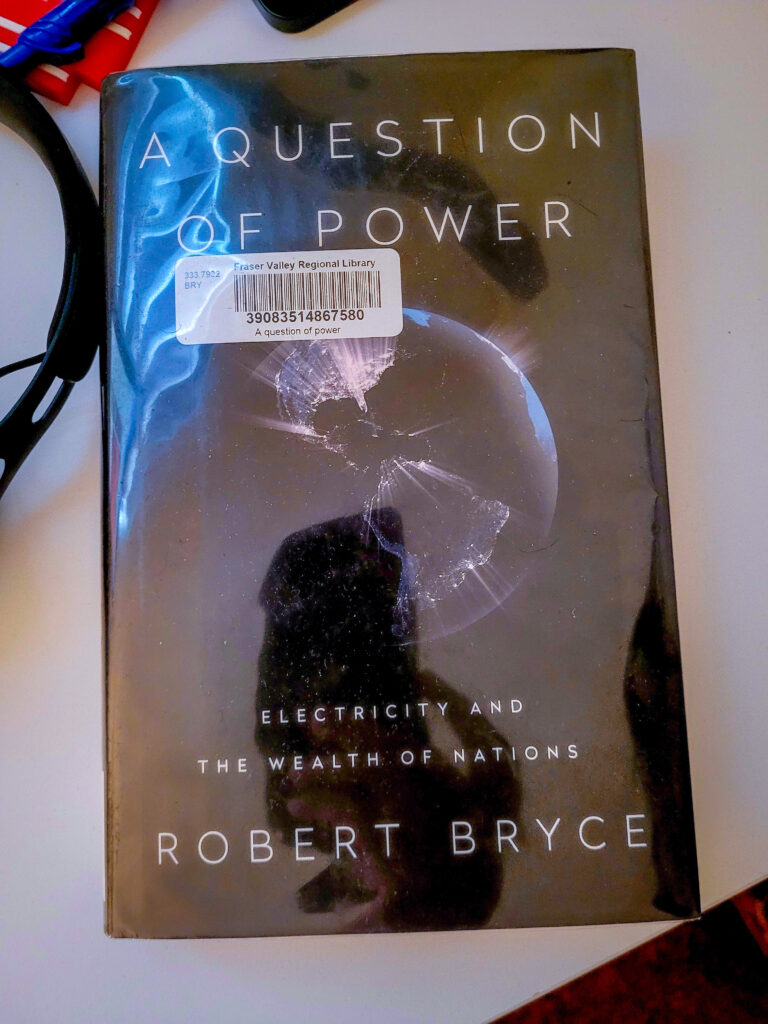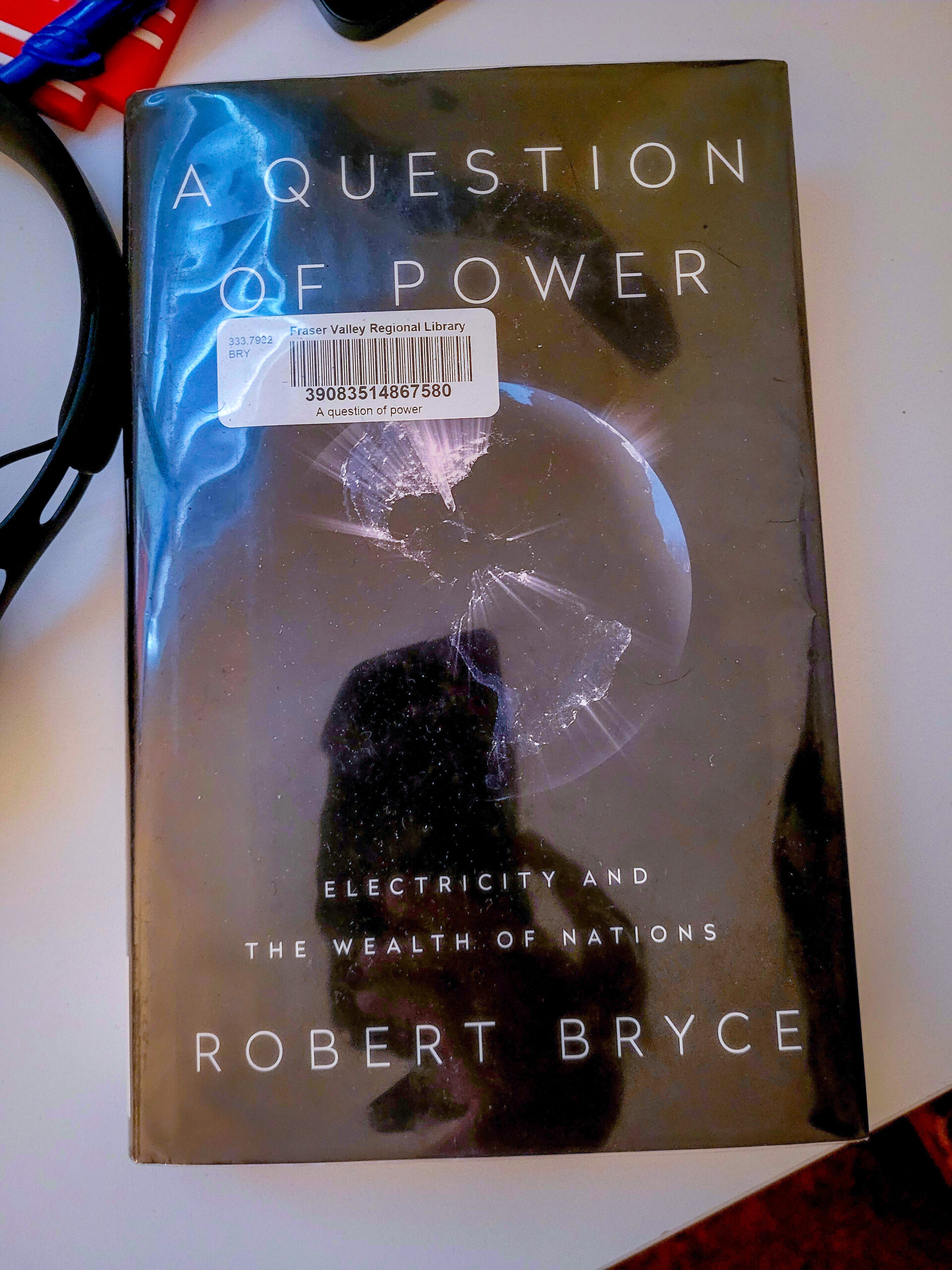
1. Name: A Question of Power
2. Author: Robert Bryce
3. Genre: Non Fiction/Energy
4. Book Post No. : 67
5. What is it about? : Electricity is one of the key drivers of today’s economies and societies, without which life as we know it will collapse. In A Question of Power, energy analyst and journalist Robert Bryce examines the various aspects associated with Electricity; its generation, its history, energy poverty, challenges with the aging grid, the impact of reliable electricity on human development indices, generation through renewables and other points. Robert travels to many countries around the world including India, Iceland, Lebanon, Puerto Rico to get an on-the-ground look at various issues. He shows that our very lives and our future depend on electricity.
6. How I came to read it? : After reading several history books back-to-back I wanted to a break and read a book related to my profession. A quick search of my local library, Fraser Valley Regional Library (FVRL)’s catalog showed this book which I promptly borrowed.
7. Did I like it? : Its a moderately ‘okay’ read so I am going to keep this review short. The book has 4 parts with multiple chapters each dealing with a specific aspect of electricity. It starts off with a quick look at the fundamentals of electricity generation and usage including units before moving onto explain how electricity has transformed our lives over the years. The history section is interesting. There are other chapters in the first part devoted to various related topics including how skyscrapers owe their existence to electricity, the new Electric Deal, how the US become a superpower on the back of its massive push for electrification and how electricity makes the lives of women better.

Part two deals with energy poverty. It also takes a look at how war affects electric grids of the (victim) countries involved. I particularly found the case of Lebanon’s generator mafia interesting. Last chapter deals with how we are still dependent on coal for most of our electricity. This book was published in 2020 and now almost 5 years later I am happy to see that, according to IEA, renewable generation is set to surpass coal’s this year (2025).
Part three deals explores how our cashless way of living is entirely dependent on electricity and how companies like visa have their data centers in secret locations with emergency backups. Some of the biggest names in tech have their own generation capacity and their portfolio is only getting bigger. The final chapter in this part also mentions the risk of blackouts and how catastrophic huge blackouts will be.
There are three reasons why electricity has led to such profound human flourishing; lighting, power and density. Electricity made lighting cheap, abundant, and reliable, which fundamentally changed how people could spend their days and nights. Electricity provides instant power, which transformed everything from manufacturing to urban transportation. Finally, electricity gives us the ability to concentrate energy flows like never before. Those highly concentrated energy flows have shaped everything from the height of our cities to the productivity of our factories and microprocessors.
Finally, Part four explores the question of renewables and if its possible to shift our entire generation from fossils to purely renewables. I felt the author spent a little too much time on this part. He also looks at Nuclear power and its advantages.
8. Positives:
- Lots of interesting facts about electricity
- On site coverage from different countries across the world was good
9. Areas of improvement:
- Too many statistics. I understand with numbers is how you make a point but its just too many.
- Spends too much time on bashing the point that all renewables generation is possible.
- Talks about developing countries without acknowledging the fact that one of the reasons the developing countries are in this position is because of the wholesale looting of their countries by the west.
10. Any other personal notes, observations, fun facts etc.
This bit of info from the book:
Roughly 3.3 billion people-about 45 percent of all the people on the planet-live in places where per-capita electricity consumption is less than 1,000 kilowatt-hours per year, or less than the amount used by my refrigerator.

